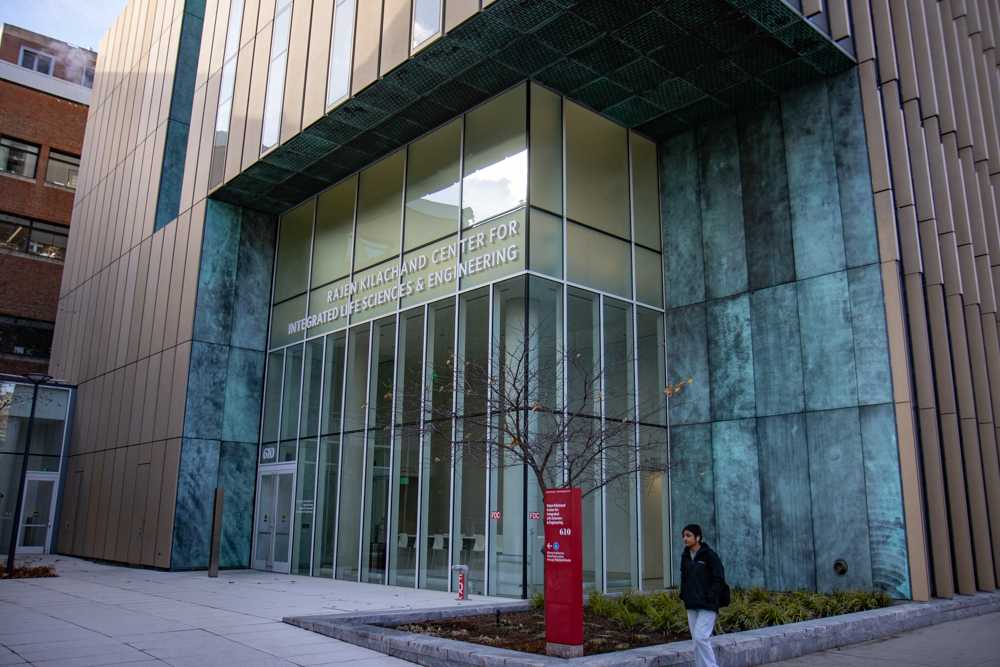When it comes to climate change policies, most Boston University students support the presidential candidate who offers ‘change we can believe in.’
In an anonymous survey of 100 randomly chosen BU students, 86 students said they thought Obama would do a better job overall in executing new climate and energy policies, 10 students said they thought McCain would do a better job executing energy policies and four students did not answer.
Participants were also given copies of both candidates’ climate and energy plans without being told which plan belonged to which candidate. Thirty-seven students said they liked Plan A, McCain’s plan, better overall, and 63 students said they preferred Plan B, Obama’s plan. Of those students, 42 said they liked Plan A’s climate change policies better, and 58 students said they liked Plan B’s climate change policies better.
Sadie Ferguson, a College of Arts and Sciences senior, said climate change is not her priority, but that it relates to her vote.
‘I vote for social causes before I vote for climate change, but they’re indirectly linked in that if climate change occurs in Boston, the people that are going to get hurt the most are the people in unbearable urban areas,’ Ferguson said. ‘It isn’t my first priority just because I feel like people are dealing with more right now, but I’m not ignoring it.’
‘Since our economy is doing so badly, it’s hard to focus on the climate issue,’ CAS freshman Makinna Oestreich said. ‘A lot of government funding for the environment is not on the top of my list, but it’s still important.’
The student poll indicates that the majority of students think that Obama will execute climate change policies better but, according to Adil Najam, director of the Frederick S. Pardee Center at Boston University, there is not much of a disparity between Obama and McCain’s climate plans.
‘The difference between Obama and McCain, the real difference, is that both are very different from the current administration,’ Najam said. ‘No matter who is elected, you’re going to see a very marked difference in the environmental policy.’
Nalin Kulatilaka, a professor of finance and economics in the School of Management, said that at face value there may not appear to be distinct differences between the candidates’ climate plans, but that the economic differences in their plans are significant.’ The main problem with the current energy policy is that the negative effects of consuming energy are only now beginning to be understood, but they’re still not affected in price, so they’re not being changed, Kulatilaka said.
Both candidates propose cap-and-trade plans, but how they plan on implementing them is extremely different, Kulatilaka said. McCain’s policy would advocate allowances to companies and industries already polluting, like cement makers and power plant owners, based on how much they’re currently polluting. Obama’s plan would auction allowances and use them as credits for consumers, so even those currently polluting would have to buy an allowance to pollute, Kulatilaka said.
‘Obama’s plan is unpopular with people polluting because they have to buy to pollute, but it gives relief to consumers through a tax break, and I think that’s a better way to do it,’ Kulatilaka said. ‘They did an experiment similar to McCain’s in Europe, and it didn’t work.’
Henrik Selin, a professor of international relations who specializes in sustainable development, said while the two candidate’s climate plans my not seem to differ dramatically, the candidate’s overall environmental history is extremely disparate.
‘The differences between the candidates become much starker when you leave climate the change area,’ Selin said. ‘With biodiversity conservation, mercury pollution and other chemicals, Obama tends to have more of a green record.’
Categories:
Climate change students can believe in
By Daily Free Press Admin
•
October 28, 2008
0
More to Discover






















































































































